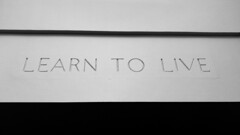By now you have deduced that this series of posts tackles the welfare of the liberal arts from many different perspectives. Rob Turchick introduced the conversation discussing the worthiness of the liberal arts – indeed, all of higher education – in today’s society. Sam Loewner followed by broaching the subject of value associated with education. Today, I continue down our tendentious path of discussion, focusing on the great benefit the liberal arts adds to every sector of the professional marketplace. I hope to provoke some thought on how liberal arts advocates can enhance their promotion of the skills graduates acquire in the liberal arts. Ambitious, I know.
Liberal arts graduates are certainly not feckless. Admittedly biased, I genuinely believe the skills liberal arts students acquire in earning their degrees make them some of the sharpest, efficacious employees. As Sam so correctly pointed out, people do understand the value of a liberal arts student – great writer; strong ability to think critically; broad depth of knowledge; all-in-all a very well rounded package – but, they fail to understand how seamlessly said skills (and numerous others) fit into almost every area of the professional marketplace. From geology to banking and engineering to teaching, the skills acquired through liberal arts courses, majors, degrees, etc, are not just pertinent – they are unmistakably necessary.
For example, a banker in Pennsylvania serving on the Pennsylvania Bankers Association needs to have the ability to articulate the pros and cons of potential financial legislation winding its way through the PA Senate to colleagues and shareholders alike. Humanitarian engineers working in Northern Africa need to be able to understand the geo-political ramifications of current freedom movements and how those movements may impact the viability of building a medical clinic, while teaming with entrepreneurs to introduce mobile diagnostic applications on cellular phones. In short, the skills that students master in a liberal arts education are as salient today as they were when farmer and inventor Thomas Jefferson sat down and penned the Declaration of Independence.
I’m unabashedly proud of what the liberal arts can give students; however, I am not naive. The liberal arts as a wide ranging curriculum faces unprecedented challenge in today’s world. Obstinately plugging away and sharing the message with folks who already believe in the liberal arts does little to solve our current problem. What mechanisms exist for liberal arts faculty, students, graduates, and believers to promote the utility of the liberal arts? Is there an efficacious way to concertedly promote the skills mastered in the liberal arts? I invite your thoughts on my thoughts and the questions I have posed.

